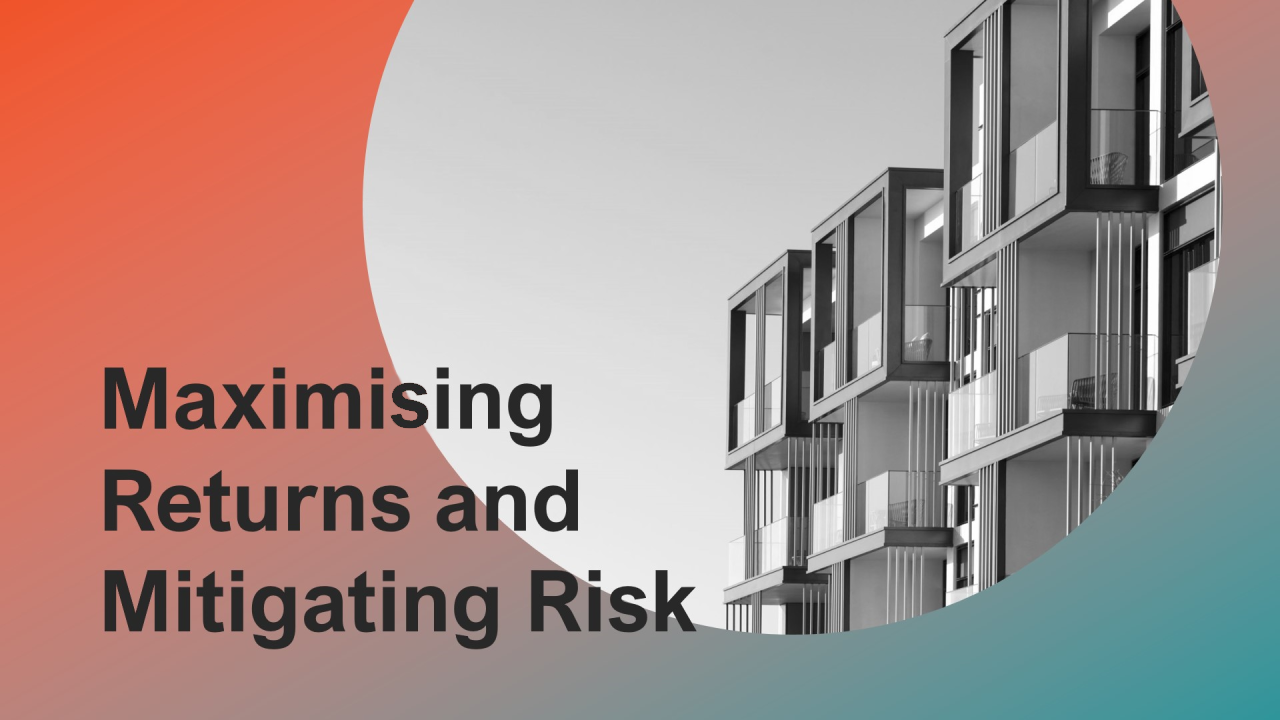Use of finance (leverage)
When it comes to investing in residential property, achieving optimal returns requires a strategic and sensible approach to finance. For investors and understanding how to utilise debt effectively can make a significant difference to the long-term returns from real estate investments.
The prudent use of debt or as it is known, leverage, allows investors to increase their purchasing power and potentially acquire more properties than a straight cash purchase. The borrower (investor) will also benefit from the capital appreciation on the whole property value and not just the capital they place into the property. Put simply leverage is using other people’s money to make higher returns.
However, it is essential to use leverage wisely and not overextend oneself. Understanding interest rates and doing extensive research on local market conditions is critical to working out a net yield figure to ensure a positive cash flow and mitigating risk. Seeking professional advice from mortgage advisors and local market experts is
A sensible use of finance in residential property investment involves balancing risk and reward, diversifying investments, and continuously seeking opportunities to optimize property performance. By adopting a strategic and financially prudent approach to real estate investment, property owners in Scotland can enhance their returns, build wealth, and build profitable portfolios.
Diversification
In the context of Scotland’s real estate market, where property values can vary significantly across different regions, a diversified investment strategy can help mitigate risks and enhance returns. By spreading investments across multiple properties or locations, investors can reduce their exposure to local market fluctuations and benefit from the overall growth of the housing market. Local market knowledge is critical to ensure maximum benefit from diversification
Renovation
Another way for a landlord to improve their returns is by property improvements and renovations. Upgrading and modernising existing properties can not only increase their value but also attract higher rental income. Whether it’s renovating kitchens and bathrooms, improving energy efficiency, or enhancing curb appeal, well thought out property upgrades can yield substantial returns in the long run.
Market trends
In addition to leveraging finance and making strategic investments, property owners should also pay close attention to market trends and regulatory changes that could impact their investments. This is especially true in Scotland as the private rented sector is the most heavily regulated in the UK. Staying informed about local property market dynamics, rental demand, and legal requirements can help investors make informed decisions and adapt their strategies to maximize returns while minimizing risks.
In conclusion, the key to maximising returns in residential real estate investment lies in understanding the financial aspects of property ownership, making properly informed decisions, and taking calculated risks when necessary. With the right mix of financial discipline, market knowledge, and strategic planning, property owners in Scotland can unlock the full potential of their real estate investments and achieve long-term success in this dynamic and ever-evolving industry.
Glenham are experts in the residential property market in Edinburgh. We offer investors a fully turn key service covering all aspects of investment including sourcing, acquisition, refurbishment and full management. We have a network of professionals who can give specific advice on the use of finance to maximise returns. Our focus is on risk mitigation and securing assets which offer our clients the best opportunity for high performing long-term investments.







